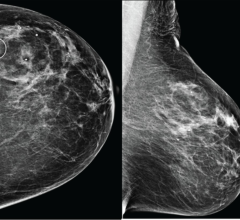February 28, 2011 – At the National Institutes of Health (NIH) summit on managing radiation dose in computerized tomography, representatives from the American College of Radiology (ACR) outlined strategies for transforming computed tomography (CT) technology and minimizing radiation exposure.
"As the stewards of medical radiation technology and safety for the past 100 years, radiologists take seriously the responsibility to provide leadership in creating policies to help ensure that patients receive only necessary care; and when imaging is appropriate, that those we care for receive the right exam for the right indication at the right time," said John A. Patti, M.D., FACR, chair of the ACR board of chancellors. "The government, manufacturers and imaging providers need to work together to arrive at quality-based imaging utilization and safety policies to ensure that patients get safe, quality care."
Imaging exams and scans are directly linked to longer life expectancy and declining death rates. The responsible use of radiation is essential to continuing these patient benefits.
"ACR accreditation decreases duplicate scans and unnecessary radiation exposure by requiring basic physician training standards for imaging providers, regular surveys of scanners by a medical physicist and certification of radiologic technologists. Image quality requirements must be part of accreditation requirements if we are to take serious steps to raise and maintain quality and safety in medical imaging," said James A. Brink, M.D., chair, ACR Body Imaging Commission. Brink presented on the role of the ACR accreditation program in reducing overall dose and improving quality.
As the medical professionals with extensive training and unique expertise in the effects of radiation, radiologists and medical physicists have long worked to minimize dose from individual scans, avoid unnecessary exams and help other providers do so.
The ACR CT Dose Index Registry allows facilities to submit anonymous patient dose information for each CT exam and compare their doses against national benchmarks. It can then alert them when thresholds are exceeded. This provides ongoing feedback that can help providers ensure, over the long term, that their patients receive optimal radiation dose.
Computerized decision support software, based on ACR appropriateness criteria, helps doctors prescribe the most appropriate scan for the patient's condition and reduce unnecessary exams. These systems can educate providers and help ensure proper imaging without taking important decisions out of the doctor's hands.
"Accreditation, decision support systems and the CT dose registry programs can reduce adverse events, unwarranted radiation exposure and unnecessary cost if Congress would vote to require all imaging providers — including hospitals — to participate in them," said Patti. "Now, when imaging providers and government agencies are coming together to arrive at better imaging policy is the time for Congress to act to require participation in these programs and help ensure quality and safety of medical imaging care."
The ACR is also working with other medical societies to help raise and maintain quality while ensuring that patients only receive safe, necessary care. The Image Gently campaign seeks to raise awareness of opportunities to lower the radiation dose used in the imaging of children.
"Children are more sensitive to radiation received from imaging scans than adults. It is vitally important that we 'kid-size' the dose when performing CT exams on children. There is always more that can be done, but the Image Gently program is a promising example of imaging stakeholders working together to help ensure that those we care for receive safe, appropriate care," said Donald P. Frush, M.D., chair, ACR Pediatric Imaging Commission, member of Image Gently Steering Committee, who presented at the NIH summit on the importance of education, awareness and advocacy for CT quality and safety in imaging of children.
Similarly, the Image Wisely initiative aims to ensure that medical imaging protocols for adults keep pace with advancing technology. The goal is to help referring physicians and medical imaging professionals understand which exams may be most appropriate and how these exams may be carried out in a safe, effective manner.
"The ACR continues to work on a number of fronts to improve and maintain the quality of care that our patients receive,” Patti said. “We look forward to working with Congress, government agencies, and other imaging stakeholders to arrive at sound, quality based, imaging policy to benefit our patients and the American healthcare system overall."
For more information: www.acr.org


 February 09, 2026
February 09, 2026 









